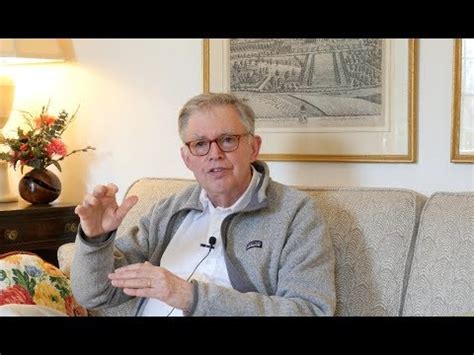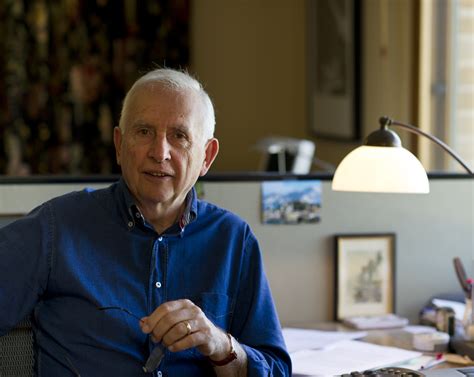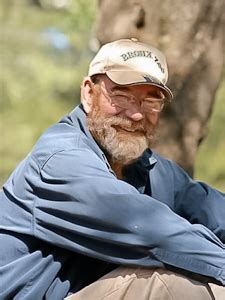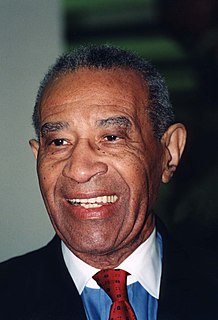A Quote by Tony Hiss
Whenever we make changes in our surroundings, we can too easily shortchange ourselves, by cutting ourselves off from some of the sights and sounds, the shapes or textures, or other information from a place that have helped mold our understanding and are now necessary for us to thrive. Overdevelopment and urban sprawl can damage our own lives as much as they damage our cities and countryside.
Related Quotes
One of the most important responsibilities of leaders in any setting - including business organisations - is to tell us our own story; to explain us to ourselves; to help us weave some meaning and purpose into the fabric of our lives; to illuminate our understanding of where we have come from; to paint word pictures of our future onto which we can project our aspirations.
Our lives are now in a telephone, all our data, all our finances, all our personal information, and so it's proper that we have some constraints on that. But it's not going to be 100 percent. If it is 100 percent, then we're not going to be able to protect ourselves and our societies from some people who are trying to hurt us.
Why do we so mindlessly abuse our planet, our only home? The answer to that lies in each of us. Therefore, we will strive to bring about understanding that we are--each one of us--responsible for more than just ourselves, our family, our football team, our country, or our own kind; that there is more to life than just these things. That each one of us must also bring the natural world back into its proper place in our lives, and realize that doing so is not some lofty ideal but a vital part of our personal survival.
Some of us have a hard time believing that we are actually able to face our own pain. We have convinced ourselves that our pain is too deep, too frightening, something to avoid at all costs. Yet if we finally allow ourselves to feel the depth of that sadness and gently let it break our hearts, we may come to feel a great freedom, a genuine sense of release and peace, because we have finally stopped running away from ourselves and from the pain that lives within us.
I beg Our Lord, Monsieur, that we may be able to die to ourselves in order to rise with Him, that he may be the joy of your heart, the end and soul of your actions, and your glory in heaven. This will come to pass if, from now on, we humble ourselves as He humbled Himself, if we renounce our own satisfaction to follow Him by carrying our little crosses, and if we give our lives willingly, as He gave His, for our neighbor whom He loves so much and whom He wants us to love as ourselves.
The arts have long been an integral and vibrant part of our nation's cultural heritage. In its many forms, art enables us to gain a deeper understanding of ourselves and of our society. Providing us with a unique way to learn about people of other cultures, it allows us to discover all that we have in common. At its best, art can beautify our cities, encourage economic development and social change, and profoundly affect the ways we live our lives.
In those days, we imagined ourselves as being kept in some kind of holding pen, waiting to be released into our lives. And when the moment came, our lives -- and time itself -- would speed up. How were we to know that our lives had in any case begun, that some advantage had already been gained, some damage already inflicted? Also, that our release would only be into a larger holding pen, whose boundaries would be at first undiscernible.
Later, I would realize that the position of most black students in predominantly white colleges was already too tenuous, our identities too scrambled, to admit to ourselves that our black pride remained incomplete. And to admit our doubt and confusion to whites, to open up our psyches to general examination by those who had caused so much of the damage in the first place, seemed ludicrous, itself an expression of self-hatred - for there seemed no reason to expect that whites would look at our private struggles as a mirror into their own souls, rather than yet more evidence of black pathology.
It is sometimes said that because of our past we, as a people, expect too much and set our sights too high. That is not the way I see it. Rather it seems to me that throughout my life in politics our ambitions have steadily shrunk. Our response to disappointment has not been to lengthen our stride but to shorten the distance to be covered. But with confidence in ourselves and in our future what a nation we could be!
Considering the importance of resentment in our lives, and the damage it does, it receives scant attention from psychiatrists and psychologists. Resentment is a great rationalizer: it presents us with selected versions of our own past, so that we do not recognize our own mistakes and avoid the necessity to make painful choices.
You are a child of God, small games do not work in this world. For those around us to feel peace, it is not example to make ourselves small. We were born to express the glory of God that lives in us. It is not in some of us, it is in all of us. While we allow our light to shine, we unconsciously give permission for others to do the same. When we liberate ourselves from our own fears, simply our presence may liberate others.

































